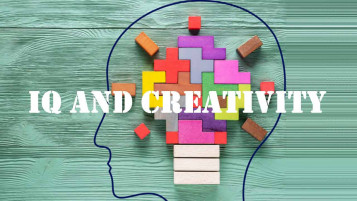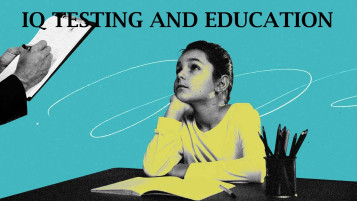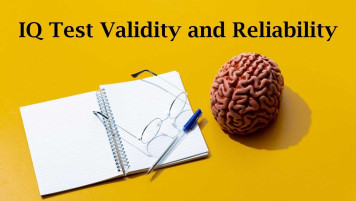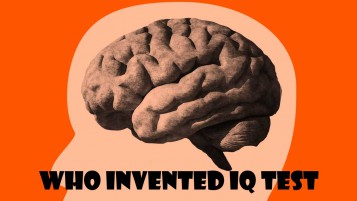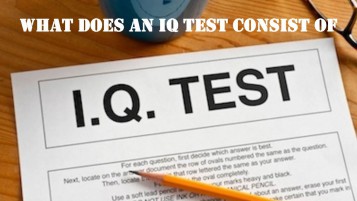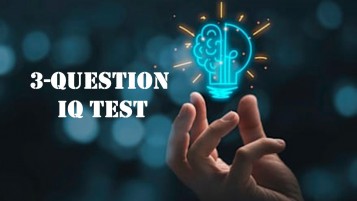Intelligence is a complicated and multifaceted aspect of human nature, and it plays a significant role in our personal and professional lives. Your IQ involves taking an IQ test, which is designed to assess cognitive abilities and intelligence.
Therefore, to understand the Intelligence Quotient (IQ) and its implications, numerous researchers, educators, and individuals have been working for decades to find out accurate answers. In this article, we will demystify what my IQ is, and how it is measured.
"My IQ" refers to the numerical score I receive after taking a standardized test designed to measure my cognitive abilities in relation to the general population. You can get an accurate estimate of your IQ score by taking a professionally administered IQ test, which is offered by educational institutions, psychologists, or online platforms. These tests consist of a series of questions or tasks that assess various aspects of cognitive functioning.
The IQ score is calculated based on how a person's performance on a test compares to the performance of others in a large sample group. Normally, the mean IQ within a population is 100 and the standard deviation is 15. It's a scientific method of quantifying a person's intellectual abilities in relation to others.
A standard IQ test, whether conducted online or in person, generally adheres to a similar structure, though the rigor, depth, and reliability might differ significantly between the two types.
We highly recommend users take the online IQ test for free on our website. Global Brain Institute (GBT) promises to make the free online test as accurate and reliable as official tests administered by certified psychologists.
|
Official In-Person IQ Tests |
Online IQ Tests |
|
|
Pros |
Accuracy: These tests are generally standardized and have high levels of reliability and validity. |
Convenience: Online IQ tests can be taken anytime anywhere. |
|
Comprehensive Analysis: The tests offer a detailed analysis of various cognitive abilities, providing insights into an individual's strengths and weaknesses. |
Cost-Effective: Most online IQ tests are free or relatively cheaper compared to official IQ tests. |
|
|
Professional Supervision: Being administered under the guidance of trained psychologists ensures proper conduct and can help in better interpretation of the results. |
Quick: Online IQ tests are generally shorter, giving you a quick estimate of your IQ. |
|
|
Cons |
Cost: These tests can be quite expensive, as they involve professional assessment and detailed reporting. |
Reliability: The reliability of online IQ tests can be quite low, and the scores might not accurately reflect your true IQ. |
|
Time-Consuming: These tests often take several hours to complete, and the feedback session can also be lengthy. |
Validity: These tests often lack scientific validity as they are not always developed based on standardized norms. |
|
|
Accessibility: Depending on your location, finding a trustworthy institute to take an IQ test can be challenging. |
Recognition: Scores from online IQ tests are rarely recognized by educational institutions or employers as a credible measure of one's intelligence. |
To grasp your IQ score's significance, explore its range, and examine the three critical factors that play a pivotal role in determining your IQ score:
The IQ score range is usually adjusted so that the average IQ within a population is 100. Here is a general guideline to interpret IQ scores:
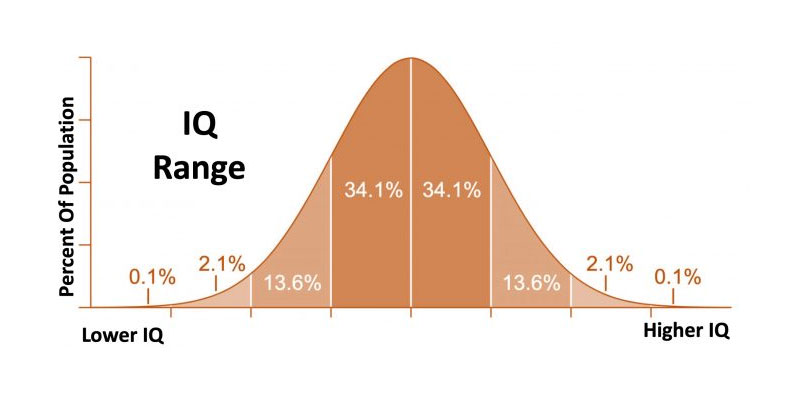
It's important to note that the above classifications can vary slightly depending on different versions of IQ tests. Additionally, IQ tests are subject to a variety of criticisms, including potential cultural bias and the limited scope of what they can measure. Moreover, an individual’s IQ score can fluctuate over their lifetime and is influenced by a variety of environmental factors.
There are three major factors that can impact an individual’s IQ score:
1. The IQ Test Participant’s Age
An individual’s IQ can be influenced by their stage of developmental growth. That means when you grow up, your IQ might change over time. However, there can be a decline in certain cognitive abilities as you get older.
2. Education, Environment, and Culture
Access to high-quality education can develop cognitive skills assessed in IQ tests. Individuals who are more engaged in educational activities might perform better on IQ tests due to their improved problem-solving skills and knowledge base.
3. Mental and Physical Health
Mental health conditions can potentially influence cognitive functioning and therefore impact IQ scores. Similarity, good physical health can support optimal brain function, while chronic illnesses or poor physical health can potentially impair cognitive functioning.
The IQ scale serves as a valuable tool for assessing cognitive abilities and understanding one's intellectual strengths and weaknesses. However, the IQ scale provides valuable insights but requires careful interpretation alongside additional assessments. Because Intelligence is a multifaceted and complex trait that extends beyond a single number on a scale.
